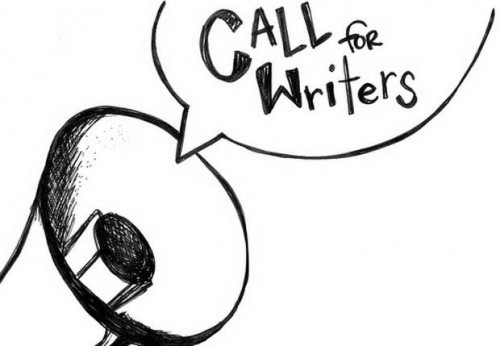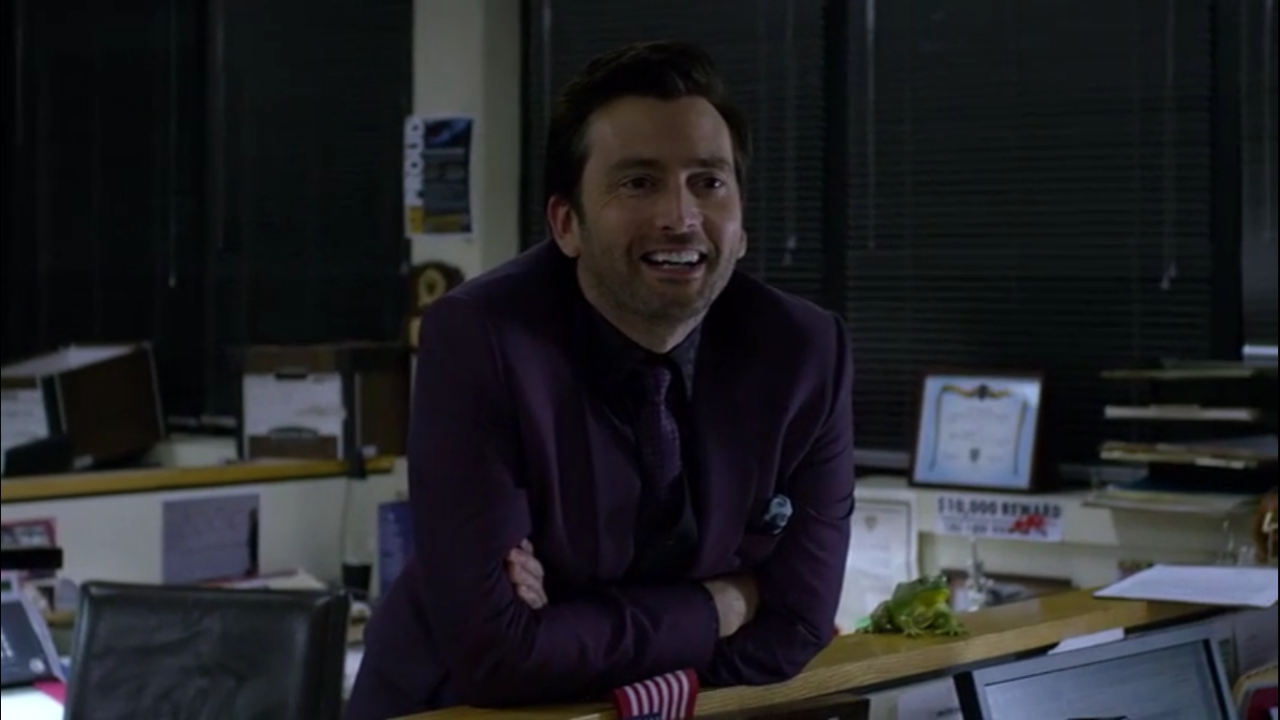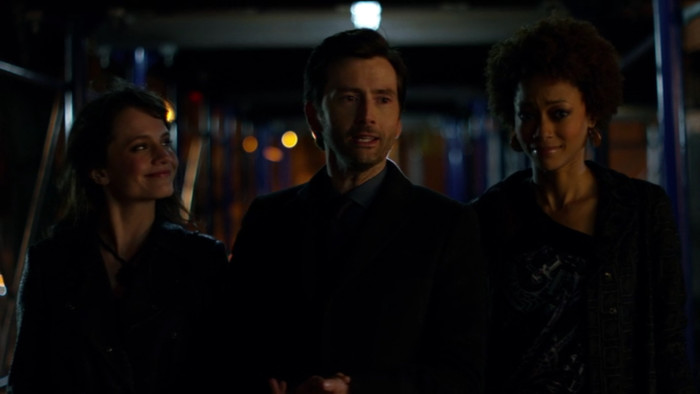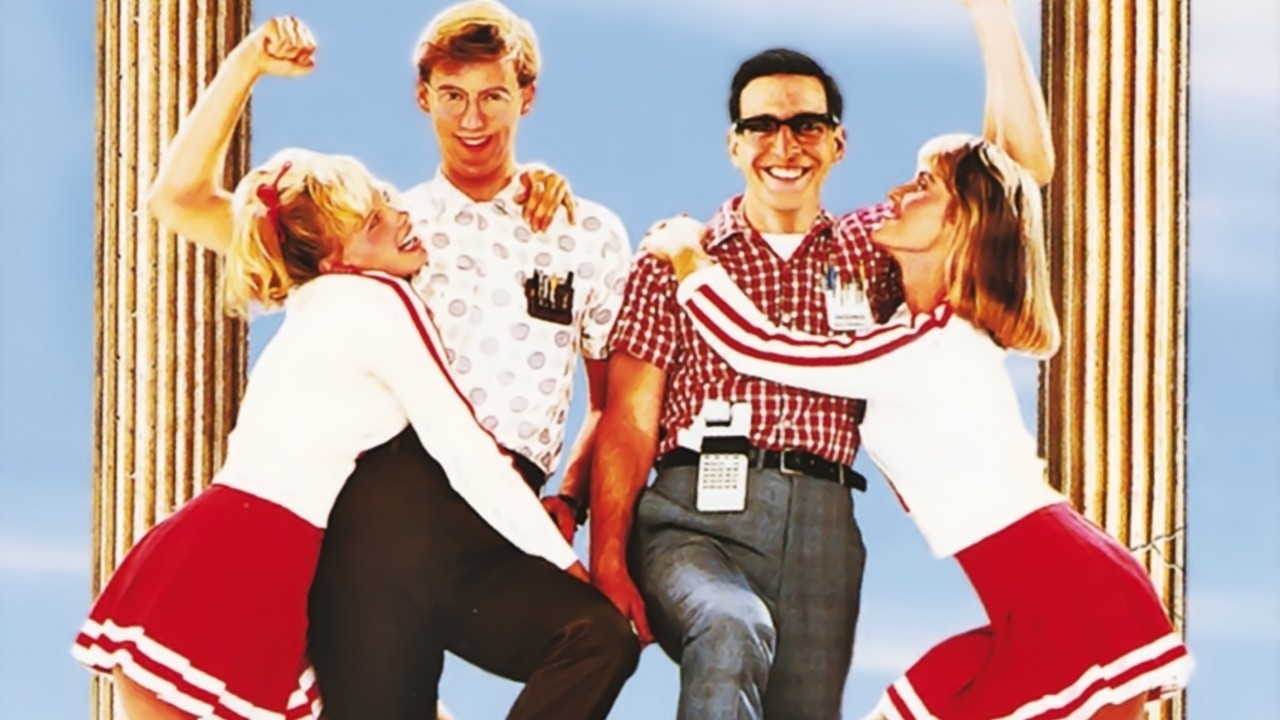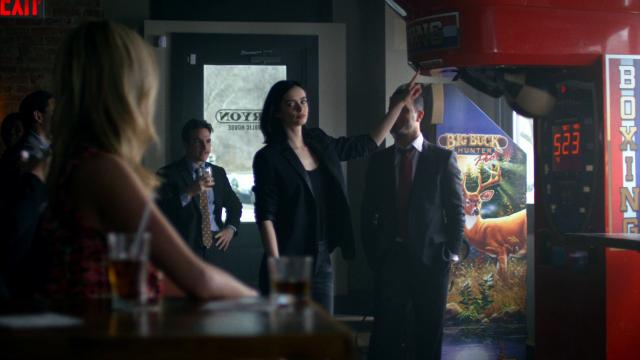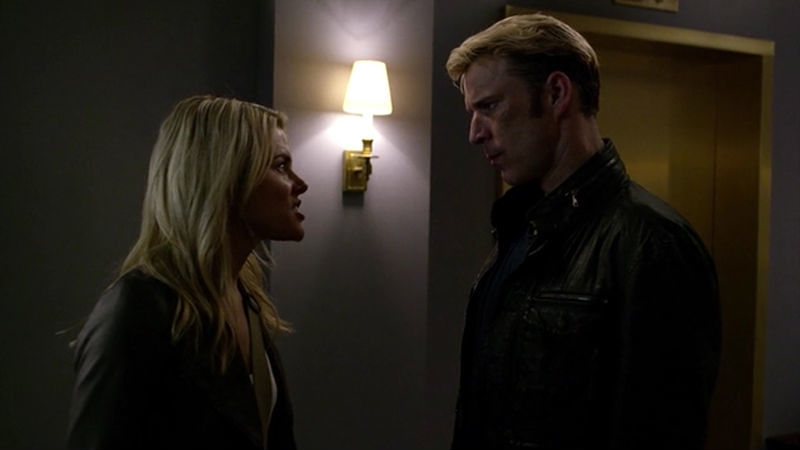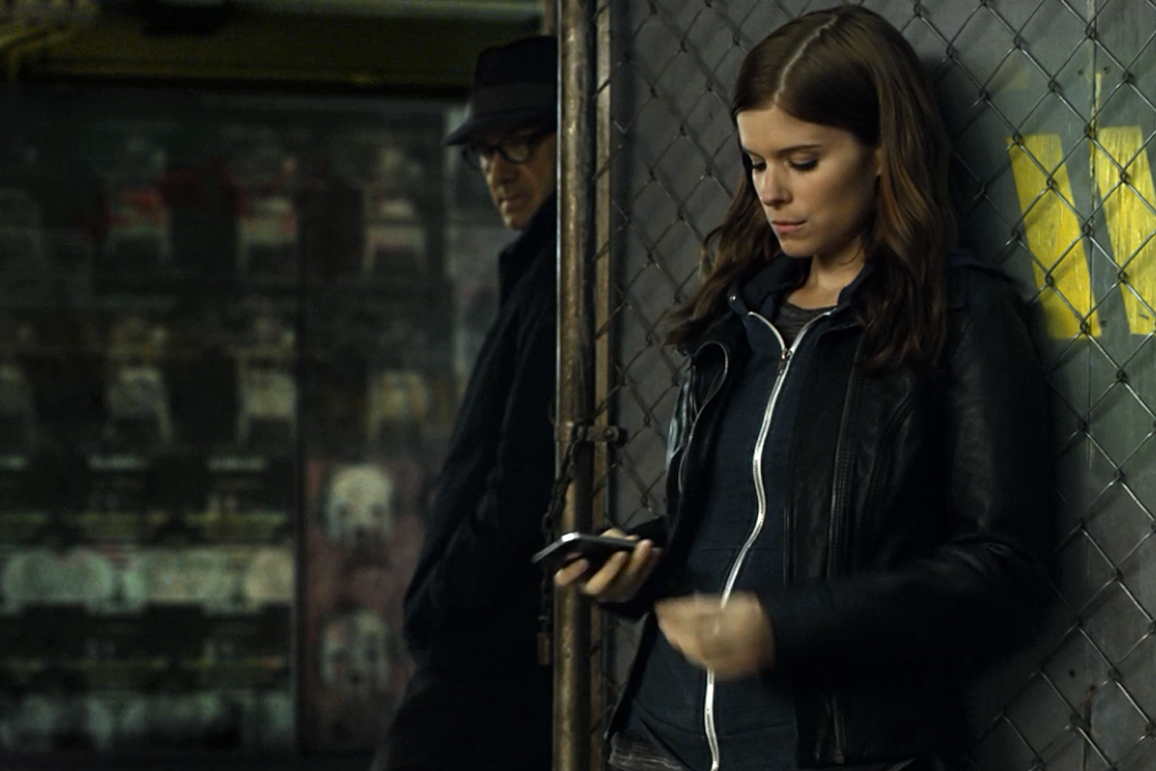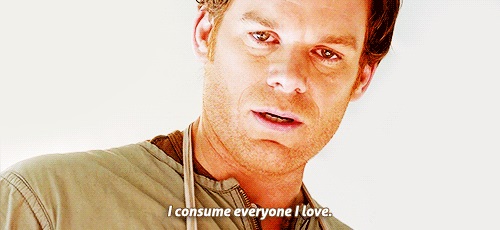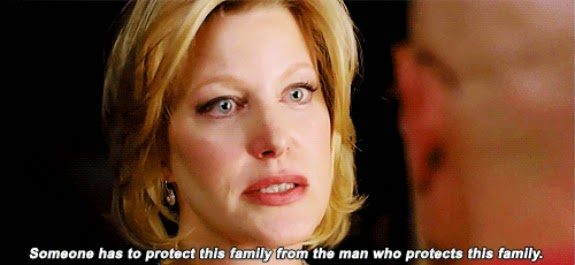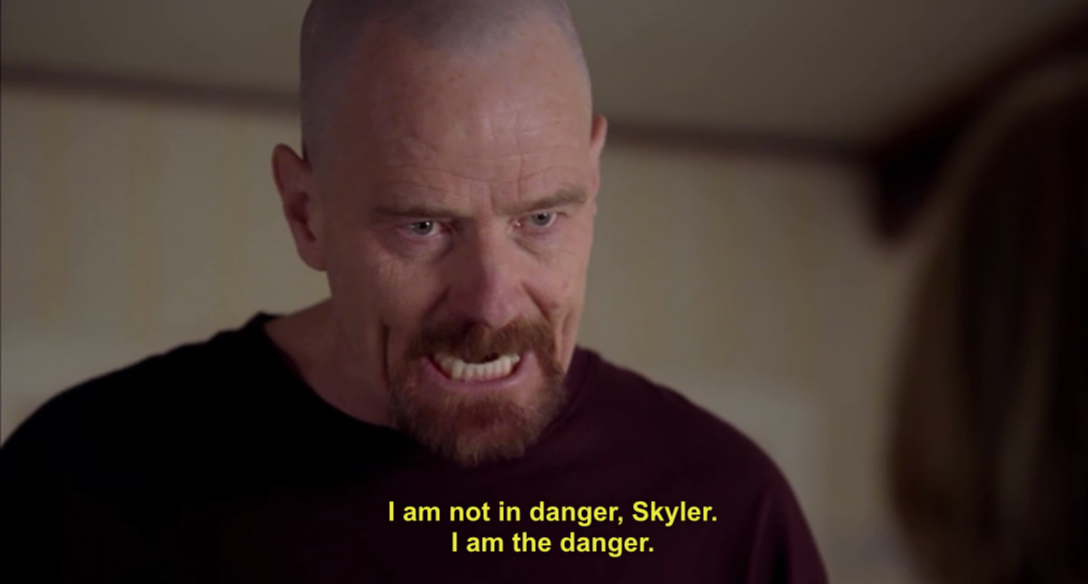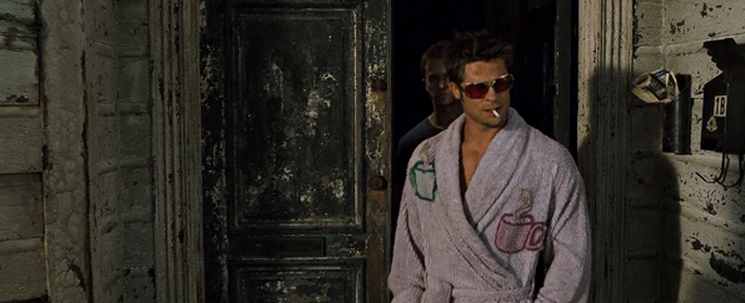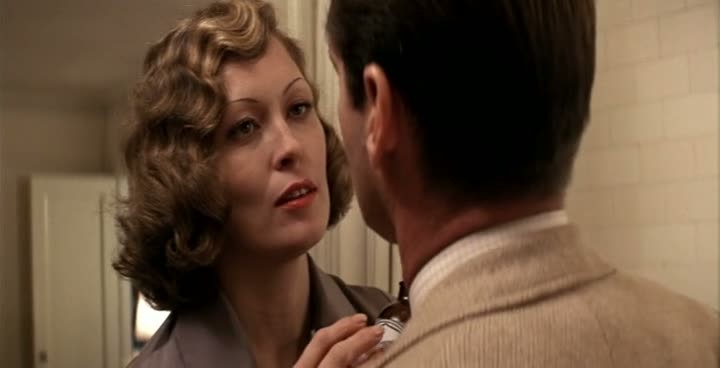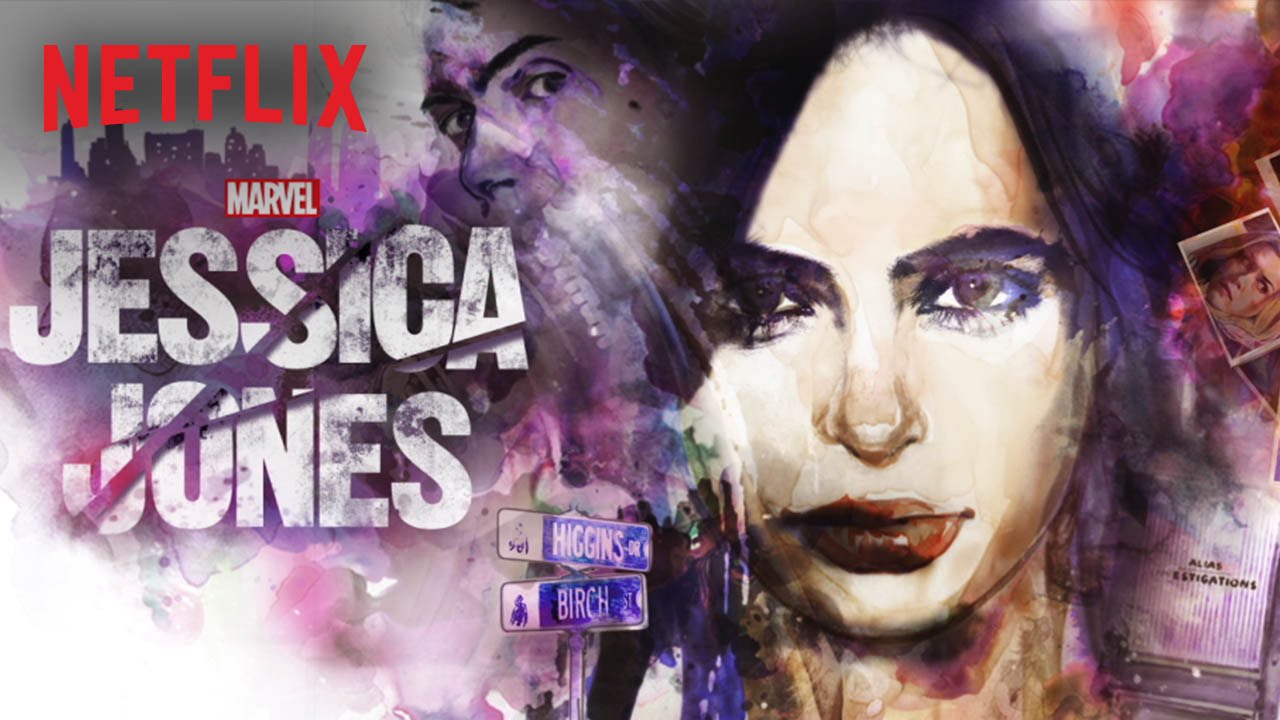
This guest post is written by Scarlett Harris.
[Trigger warning: discussion of intimate partner abuse] | Spoilers ahead.
There’s TV that, when you watch, makes you feel all warm and fuzzy and can be likened to a hug. For me, it’s Grey’s Anatomy. And then there’s TV that doesn’t necessarily fall within this category that I still love, such as Orange Is the New Black, with its focus on crime, drug addiction, broken families and poverty, and that upon marathoning makes you ache to get back to the trials and tribulations of Sophia, Taystee, Poussey, and Red.
Despite binging Jessica Jones over my Christmas and New Year’s break, I almost dreaded sitting down for a few hours every afternoon to check into Jessica’s world. I guess that’s what a series directed so heavily at abuse is wont to do.
https://twitter.com/mojorojo/status/670495742503489537
https://twitter.com/2k16sebastian/status/676787210411208704
In the six weeks or so since Jessica Jones was released in full on Netflix, the internet has been abuzz with its brilliance. Many feminists asserted that this is what it feels like to watch content created for women, by women, while others marveled (pun intended) at the show’s gritty portrayal of New York City and an actually villainous villain, a departure from some of Marvel’s other offerings.
Jessica Jones’ emphasis on abuse was also heavily discussed. Kia Groom at The Mary Sue wrote about her experience in a similarly abusive relationship as the one central to the TV series. Stassa Edwards at Jezebel wrote:
“If Jessica Jones is a feminist show, as many critics have said that it is, it’s not simply because it presents a complicated woman, but rather because it understands how strength and control play out in the lives of women.”
To return to OITNB, for example, the fellow Netflix offering isn’t necessarily littered with likable characters (*cough* Piper *cough*), but there are enough peripheral characters whose backstories come ‘round every now and then to tide you over while the story pivots back to Piper, Alex and the more boring inmates. Despite a couple of likable characters in Jessica Jones (I can only think of Malcolm and Trish), they weren’t enough to get me excited to come back to the rollercoaster of emotions. This is understandable: pretty much all of the characters are victims of some kind of abuse, whether it be villain Kilgrave’s mind control or otherwise, so if anyone has an excuse to be pissy, it’s them.
Edwards writes:
“…[Jessica Jones’] expression of anger — her inability to contain it — is what makes Jones deeply unlikable. But then, being unlikeable is part and parcel of being a woman on the edge. The emotional expression of anger has always been coded as an indelible marker of trauma and of difference.”
But what even are “likable” characters? Roxane Gay, a couple of years ago almost to the day, wrote about this phenomenon at Buzzfeed, touching on points from unlikable female characters being perceived to be suffering from mental illness, being inconveniences and coming across as having more humanity than likable ones. (Gay, as a survivor of sexual assault herself, has also written about the futility of trigger warnings, however this piece makes the case for them in Jessica Jones.) Jessica Jones works so well because most of its characters reek of humanity, however unflattering.

What’s more important than likable characters, though, are relatable ones and Jessica Jones has that in spades. We get impressions of this when Jessica tells Trish she can’t comfort her when she’s tased in an attempt to capture Kilgrave and when Jessica pushes those close to her away.
Perhaps the most human character, despite his villainy, is Kilgrave. We are first introduced to him through Jessica’s perspective as a cold and calculating abuser, which he is. But as the season progresses, we see glimpses of Kilgrave’s humanity and that he himself was embroiled in the cycle of abuse perpetrated by his parents who performed experiments on him as a child in an attempt to understand his mind control powers. While Jessica Jones seems to want us to believe that Kilgrave’s parents were trying to protect him and others from his “gift,” to me it was unclear as to who was abusing whom.
As I started to fathom Kilgrave’s past, I was reminded of an article written in 2014 for White Ribbon, an Australian campaign for the prevention of violence against women (which has its own problems), by Tom Meagher whose wife Jill Meagher was raped and murdered in Melbourne in 2012. He asserted that, despite the attack perpetrated against Jill by a known criminal, rapists, murderers and abusers of women aren’t “monsters” lurking in dark alleyways and behind bushes in the dead of night: they’re most often known to, trusted and/or loved by those they choose to abuse. Meagher wrote:
“By insulating myself with the intellectually evasive dismissal of violent men as psychotic or sociopathic aberrations, I self-comforted by avoiding the more terrifying concept that violent men are socialised by the ingrained sexism and entrenched masculinity that permeates everything from our daily interactions all the way up to our highest institutions…
“The only thing more disturbing than that paradigm is the fact that most rapists are normal guys, guys we might work beside or socialize with, our neighbors or even members of our family.”
Groom echoes this at The Mary Sue:
“Yes, Kilgrave is a rapist, but his sexual abuse is not of the kind we often see represented on television; he abuses in the context of relationships that seem, to the outside observer, consensual, and it is this — his psychological abuse of his victims, his absolute and total control and manipulation of them, his dominance over their agency and their free will — that make[s] him so utterly terrifying.”
Edwards further expands on this at Jezebel, asserting that Kilgrave is a different kind of villain — and a more terrifying one — from your typical Marvel fare in that:
“…The mundanity of control he exercises over Jones, over nearly every woman who crosses his path, is what makes him so evil, even more menacing than the typical villain. Kilgrave is every woman’s worst nightmare: he is a rapist, an unrepentant stalker, a man who, at any moment, can exercise his power and does.”
This “monster myth” and the cycle of abuse can also be seen in Officer Will Simpson, who begins a relationship with Trish after he tries to kill her whilst brainwashed by Kilgrave. Cate Young at Batty Mamzelle (cross-posted here at Bitch Flicks) explores this in depth. The fact that the actress who plays Trish Walker, Rachael Taylor, also survived abuse by her high profile ex-partner in 2010 adds yet another layer to the series.
As these examples attest, what Jessica Jones arguably has more of than relatable characters is relatable situations.

Not everyone can relate to being in an abusive relationship, and thank god. I haven’t personally been abused by a partner, but I grew up in a violent home as well as abuse being a big part of my life in recent years in reading about it, watching it take place on screen and in the news, and working towards changing attitudes about it through my writing and in everyday conversations (though I could be doing more; we all could). One of the more pervasive attitudes surrounding intimate partner violence is asking why the survivor “doesn’t just leave” without paying mind to the isolation from loved ones and external support systems by the abuser; the abuser’s reinforcement of worthlessness in the survivor; the depletion of their resources, such as money and their ability to make a living; and the threatening of children, pets and other loved ones. If ever there was a personification of this psychological abuse that goes along with physical abuse, it’s in Kilgrave.
Kilgrave preyed on a once vibrant and happy young Jessica Jones, glimpses of whom we see in a bar scene with Trish in episode five, “AKA The Sandwich Saved Me,” trauma which caused her to suffer from paranoia and alcoholism. Even after she manages to escape him, her life in tatters and suffering from PTSD, Kilgrave infiltrates himself back into her life, turning even the most tenuously connected people to her into his pawns, such as Malcolm, her — again — once vibrant and now drug-addicted neighbor. In a metaphor for the disbelief domestic violence survivors often face, Kilgrave manipulates Jessica’s allies into helping him, as seen with Jeri Hogarth assisting him in his escape, partly of her own free will but also under his mind control. He gaslights Jessica, telling her it’s her fault he uses his powers to make people do things they don’t want to do, namely kill others and themselves. He tries to win back her affections by buying her childhood home and restoring it to its former glory, another allegory for entrapment and, frankly, is just plain creepy. He tells her he can’t live without her and how much better she makes him, exemplified in their short-lived foray into tandem superheroism in episode eight (“AKA WWJD?”) when they save a family from another, perhaps more archetypal domestic abuser. This is also a pitch perfect portrayal of the hope an intimate partner violence survivor might face in seeing the “good” side of their partner and is transferred onto the audience: maybe Kilgrave can be good, I wondered.

Hope is a guiding force in Jessica’s pursuit of Kilgrave, embodied by the character of the same name. Jessica resists the easy way out — killing Kilgrave — for much of the thirteen episode arc as she needs him alive as proof of Hope’s innocence in her parenticide charges, committed under Kilgrave’s control. Proof is also something intimate partner abuse survivors are perpetually demanded to demonstrate — by law enforcement, the criminal justice system, society, even friends and family — even when it’s on their bodies in the form of blood and bruises and, in Hope’s case, in her uterus. Also, as previously stated, not all abuse is physical and society should believe, rather than disregard or dismiss, intimate partner violence survivors.
Despite Kilgrave’s rape of both Jessica and Hope, and his intention to do the same to Trish (and who knows how many others), showrunner Melissa Rosenberg was very conscious of depicting rape and abuse differently from a lot of other media that uses it as a “titillating” plot device, telling The Los Angeles Times:
“With rape, I think we all know what that looks like. We’ve seen plenty of it on television and I didn’t have any need to see it, but I wanted to experience the damage that it does. I wanted the audience to really viscerally feel the scars that it leaves. It was not important to me, on any level, to actually see it. TV has plenty of that, way too often, used as titillation, which is horrifying.”
Despite the influx of shows dealing with abuse, such as Unbreakable Kimmy Schmidt, Game of Thrones and mainstay Law & Order: SVU (which Emily Nussbaum and Lindy West discuss on The New Yorker Radio Hour), how often do we actually hear the confident pronouncement of the word “rape” that Jessica spits at Kilgrave in other media? Jessica Jones succeeds in depicting sexual abuse in a more harrowing and real way than shows that throw it around willy-nilly for shock value and not much else.

Scarlett Harris is an Australian writer and blogger at The Scarlett Woman, where she muses about femin- and other -isms. You can follow her on Twitter here.
